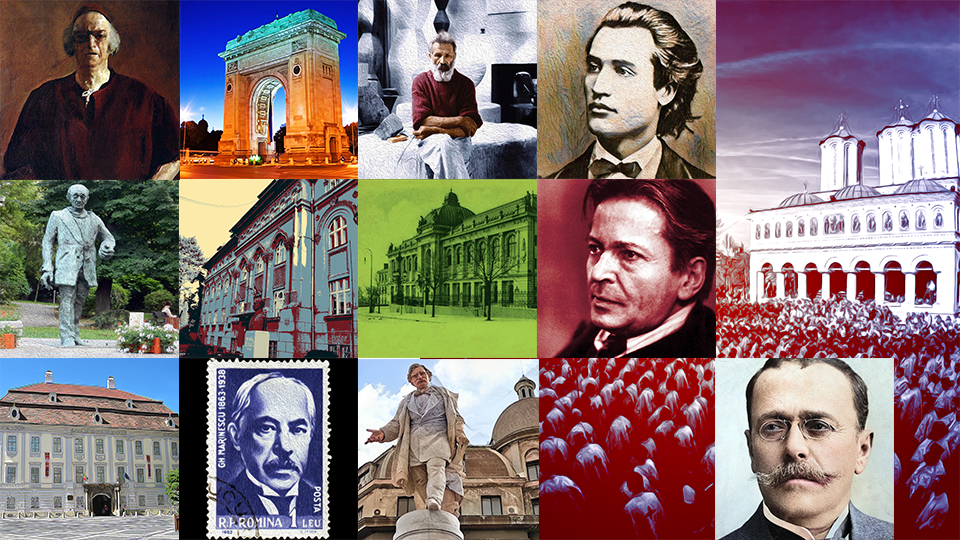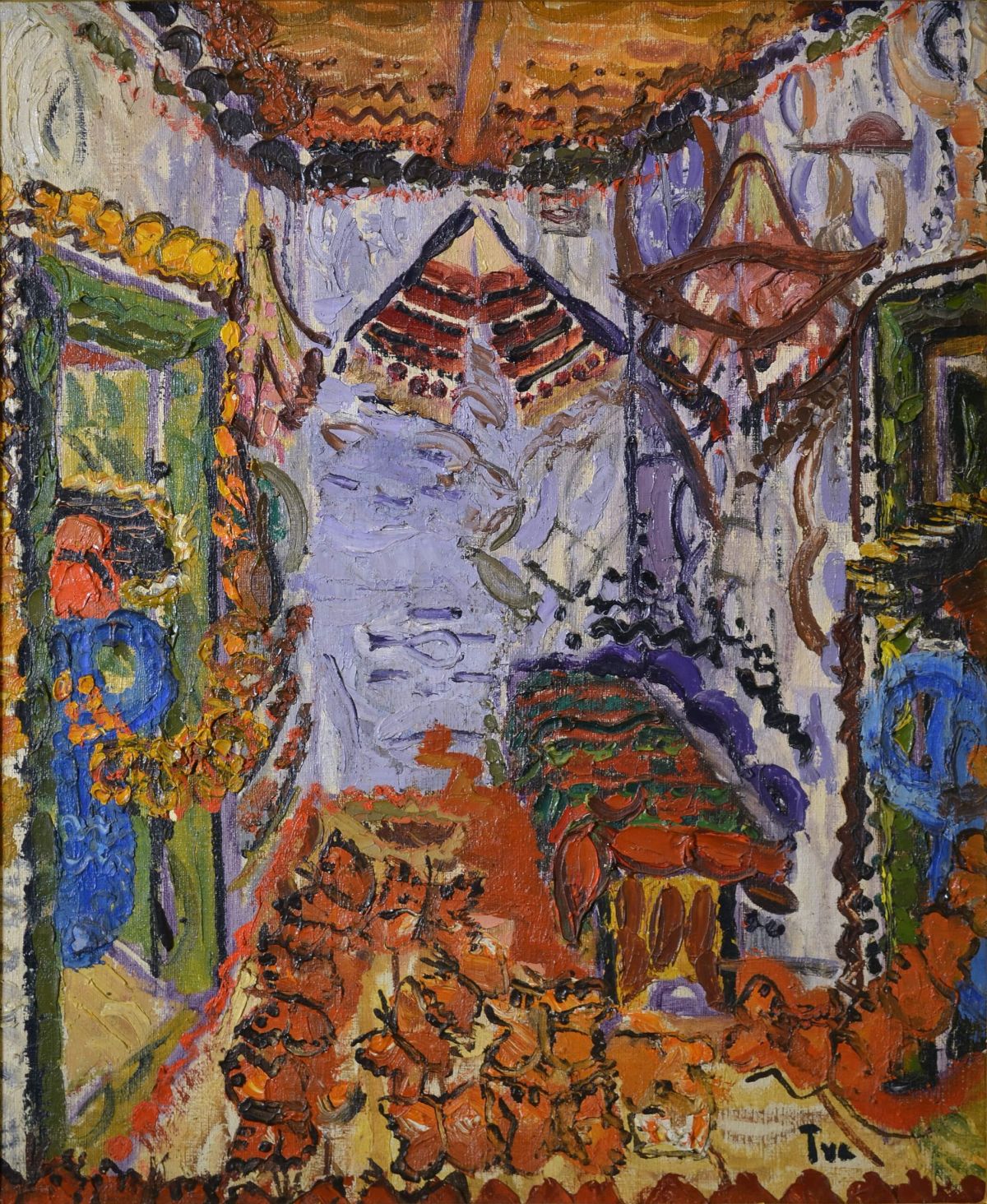Romania’s troubled history in the early 19th century
The 1821 Revolution led by Tudor Vladimirescu

Christine Leșcu, 25.09.2022, 14:00
The
Revolution led by Tudor Vladimirescu was held in the first part of the year
1821, actually over February and May. It led up to the end of the Phanariot
reigns in Wallachia and Moldavia. Its leader, later on, gained the status of a
mythical character, thanks to the revolution he led. Tudor Vladmirescu is
oftentimes mentioned in history textbooks; he has been immortalized through
statues and paintings. However, the real character is less well-known by the
lay public, at once being an interesting, even controversial character. The
Revolution led by Tudor Vladimirescu in Wallachia was intertwined with the
Greek revolution of liberation from the Ottoman Empire. Vladimirescu’s
connection to the Eteria, the secret society that actually started the Greek
revolution, eventually led to his assassination. Born into a family of freeholders, mosneni,
in Romanian, in Gorj County, through his skill and adaptation capacity, Tudor
Vladmirescu gained the status of an estate agent; in turn, he was a merchant
and a purveyor of the Tsarist army, a rank similar to that of officer, a rank he
gained during the Russian occupation of 1806 and 1812. The reasons underlying
the outbreak of the unrest also included personal ambitions as well as the need
of several political changes. His activity depended on the collaboration with
the Eteria, but also on the hope of a military assistance provided by the Russians, which,
even though it had not been promised, it was also expected by the Greeks. The
historian Tudor Dinu, in his recently launched work titled The Greek
revolution of 1821 on the territory of Moldavia and Wallachia, provided a
detailed account of the personality of Vladimirescu and of the underlying
reason of his collaboration with the Eteria revolutionaries led by Alexandru Ypsilanti. Also, the book highlights the purpose for which Tudor Vladimirescu
started his revolt.
Here is the historian Tudor Dinu himself, with details on
all that.
Tudor played a key part in the Eteria fighters’ plans. As early as 1820,
when the Eteria revolutionary warriors convened in the town of Ismail to set up
the general plan of the revolution, they said that in Wallachia, the revolution
was to be started by a one Tudor Vladmirescu, whom they deemed as the
commander of the armed men in Craiova.
The
Eteria revolutionaries sponsored Tudor Vladimirescu and thought he could be a
manageable tool in their hands. But they couldn’t have been more wrong, just as
the great boyars got it all wrong, who wanted to wind him round their little
finger. He could be, in my opinion, the most impressive example of a self-made
man in our history: a commoner, who believed in his star, trying to overcome
his condition in a brilliant manner, going at all lengths for his career, first
worming himself into the boyars’ favor, then going into trading very
successfully, first, on behalf of this and that boyar, later, for himself,
getting a position in administration, all that culminating with a military
career. Gaining acceptance to the Russian consul’s entourage, collaborating
with the Eteria, he went as far as hoping to obtain the reign in a new system,
he even hoped for the toppling of the social order in the Principalities, which
could have been made possible though the liberation brought by the Russians.
The Greek sources provide many new things, in this respect, stating that the
Eteria revolutionaries promised Tudor they would get him seated on Decebalus’ s
throne.
However,
irrespective of the reasons, Tudor Vladimirescu and his army succeeded to
destabilize the Phanariot order, also gaining the support of a relevant part of
the domestic boyars’ class, reaching as far as the princely court in Bucharest.
Meanwhile, the Eteria revolutionary warriors led by Alexandru Ypsilanti had
penetrated Moldavia. There they were trying to muster an army made of locals,
hoping the population in the Romanian principalities would rise up, on a large
scale, against the Ottomans. Part from the political changes did the
revolutionaries consider social changes as well?
Historian Tudor Dinu:
The most radical, to that effect, socially but also
politically, was Alexandru Ypsilanti. In his political program, Alexandru
Ypsilanti stipulated, for instance, the existence of indigenous rulers, but
also some sort of constitutional monarchy, with the rulers’ incomes being
checked by an early parliament of the Romanian Principalities. As for Tudor, he
also had important proposal in the social field meant to improve the lives of
commoners, yet they were not as radical as they were presented to us. For instance,
he proposed, among other things, that certain taxes be reintroduced. It goes
without saying he also had some very interesting suggestions. The most
important one, for the development of commerce, was the dismantling of domestic
customs, by means of which products brought from another city were very
expensive. Also, Tudor proposed the equal decrease in revenues for bakers and
butchers, so that bread, but also meat, could be affordable. There also was
another proposal, perhaps the most radical one, but impossible to implement:
the merit-based ascription of high-office dignities, something that could not
be implemented, and as for the system of corruption, it could not disappear,
given that Tudor himself pleaded for the income reduction in the case of
high-office dignitaries.
Despite
the long-term intentions, the situation on the ground was not a happy one. The
Eteria Army’s crossing of the Romanian territories wreaked havoc and meant
plundering and unrest carried by the local population. Moreover, the looming Ottoman
invasion ran the risk of yet again turning the Principalities into a war
theater, what with the fact that the eagerly-awaited Russian assistance failed
to appear. Under the circumstances, Tudor Vladimirescu initiated a risky
diplomatic action, meant to protect the country, but also his past success; he
tried to negotiate with the Sublime Porte in Istanbul. However, Alexandru Ypsilanti
learned about those attempts and considered Tudor a traitor.
Historian
Tudor Dinu:
Maybe the most important
accusation count is a letter Tudor sent and which fell into the Sultan’s hands.
In that letter he expressed his wish to wage war against Ypsilanti the
traitor, provided the High Porte gave him some assistance. But that was not
possible. The High Porte could not offer military assistance to a mutinous
Christian. It may very well be that Tudor was extremely clever, in his bid to
maintain good relations with the Turks, refraining from going against
Ypsilanti. Also, Tudor kept a last-ditch hope alive that the Russian army might
come. He
had been given assurance, via numerous channels, that is why he was slowing things
down a little bit. But from the viewpoint of the Eteria revolutionaries, that
was treason.
Accused
of treason, Tudor Vladimirescu stood trial according to Eteria’s Criminal Code.
He was sentenced on the grounds that he went against Eteria’s motherland,
Greece, even though Tudor’s motherland was definitely Wallachia. That is why
his trial and subsequent execution are, even to this day, rated as inequities,
by the Romanian historical research and public opinion. For the Romanian Principalities,
the revolution would come to an end once with Tudor Vladimirescu’s death on May
28, 1821. As for the Eteria revolutionaries, they would continue their fight
against the Ottomans on the territory of Wallachia, until their defeat in
Dragasani in early June. Here is historian Tudor Dinu once again, this time
speaking about the effects of the 1821 revolutionary year on Wallachia and
Moldavia.
Tudor Dinu:
For the Romanian Principalities, the Greek revolution was catastrophic, because, in the wake of the
Greek revolution, the Romanian principalities were completely devastated. The
Romanians’ sacrifice was an exemplary one. One or two decades were needed for
the Romanian Principalities to recover from such a devastation. Then a
Russian-Turkish war followed. In another move, the role the 1821 Revolution
played was fundamental, since it marked the Romanian principalities
definitively falling within the West’s orbit, even though the process had begun
in 1812. It took shape and was to be completed at the level of the elites, and
not at the level of the Romanian peasant, who, in the 19th century,
still lived according to ancestral rhythms. Such a sacrifice was necessary, so that Romania could find its place on
the map pf Europe, and not on that of the Ottoman Empire. (EN)





























